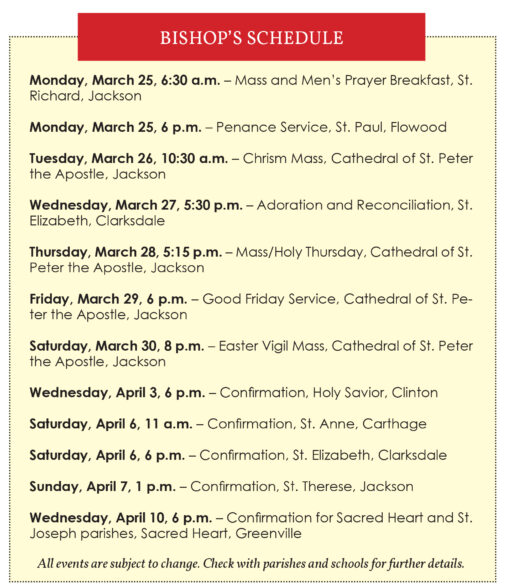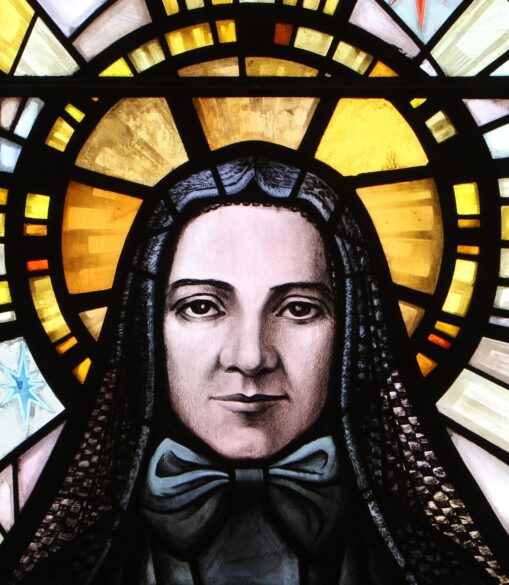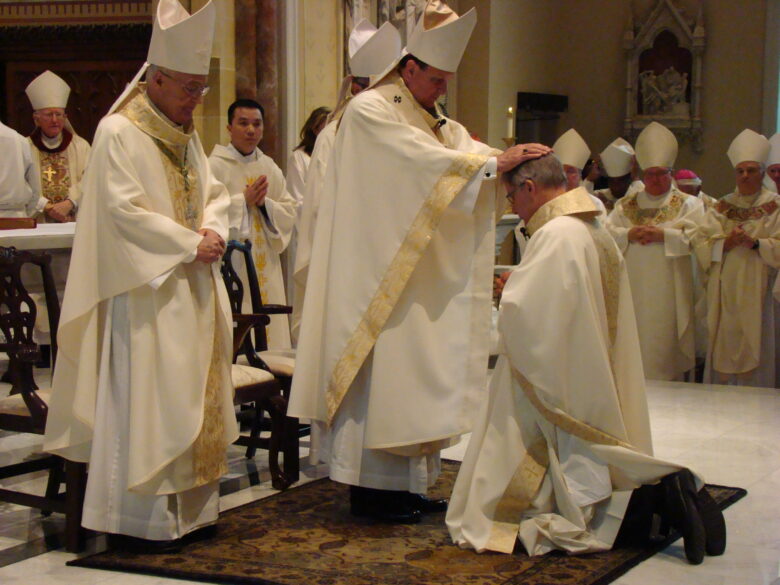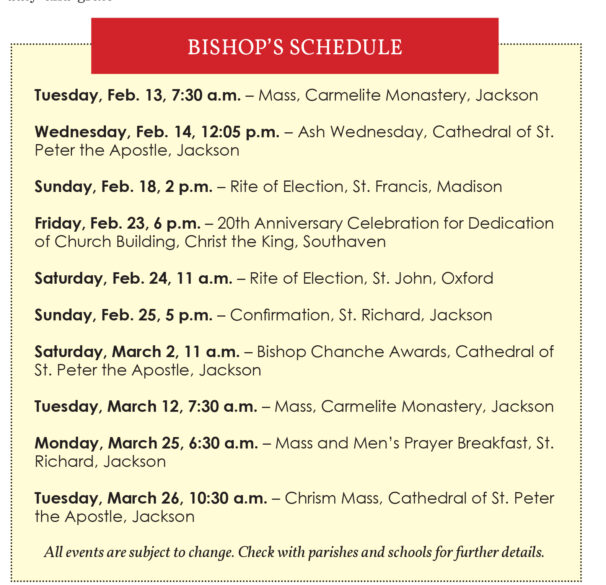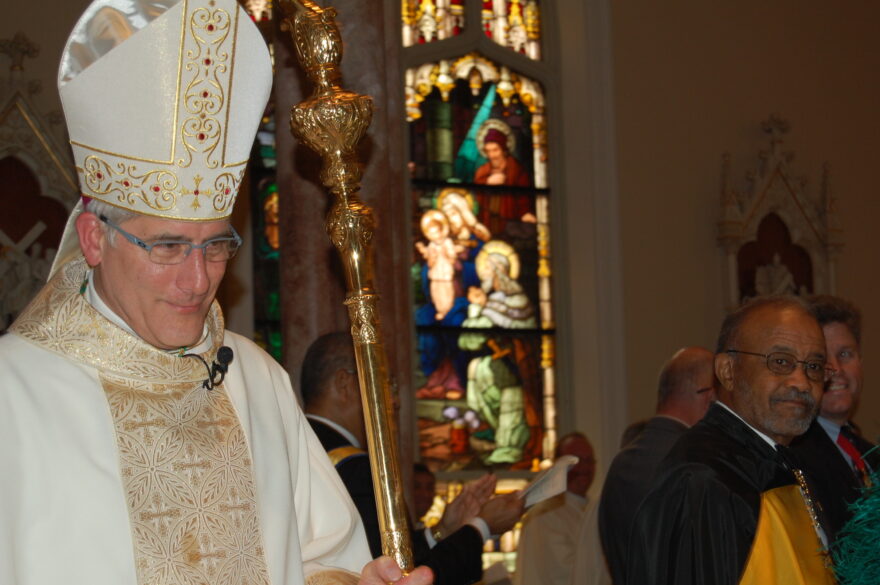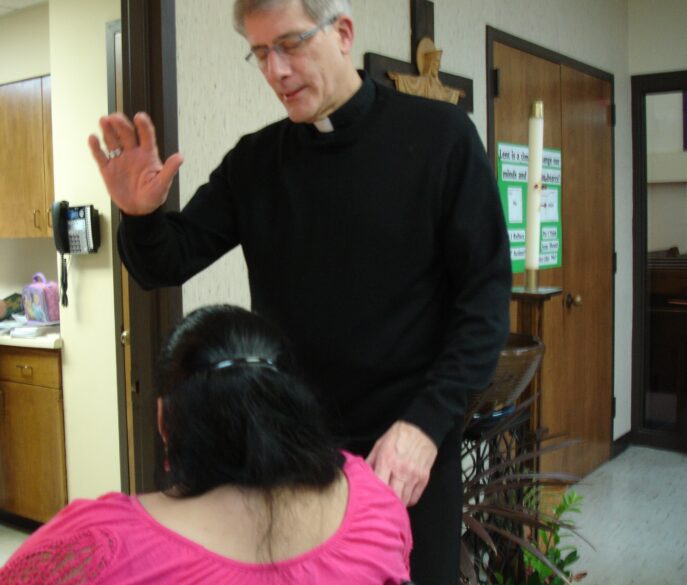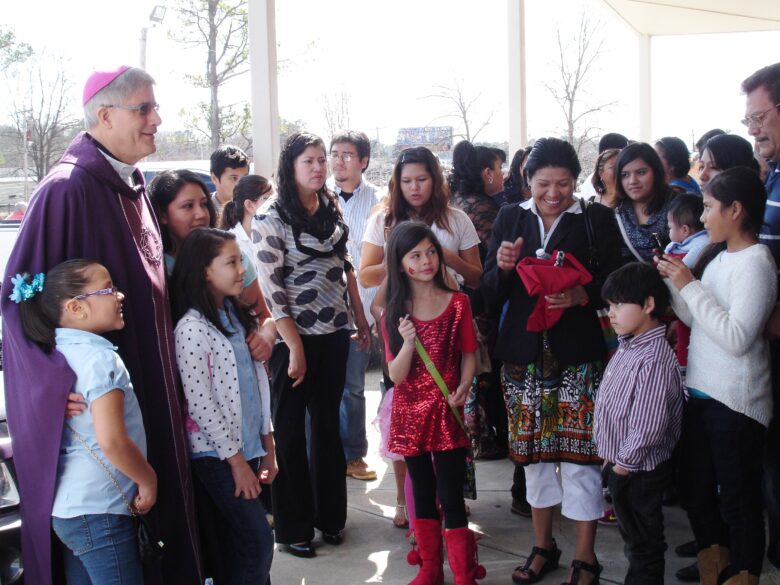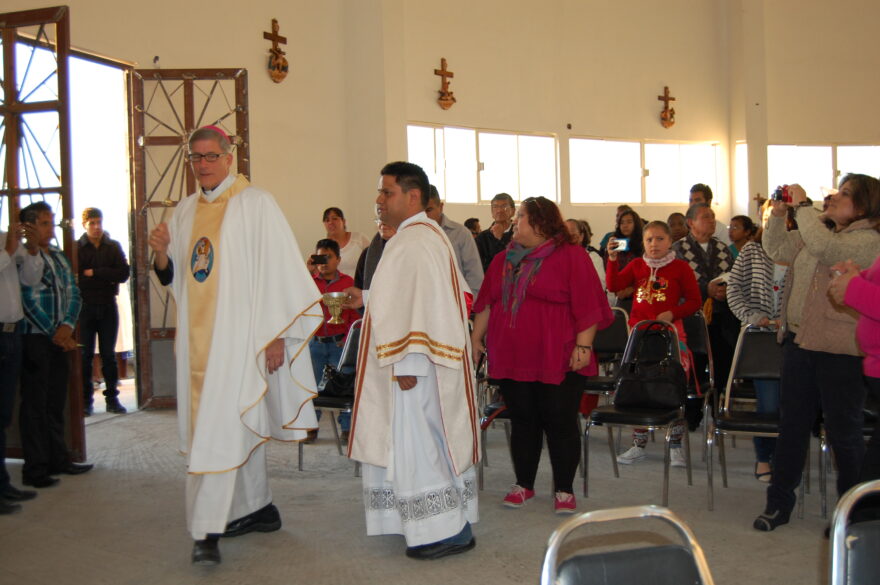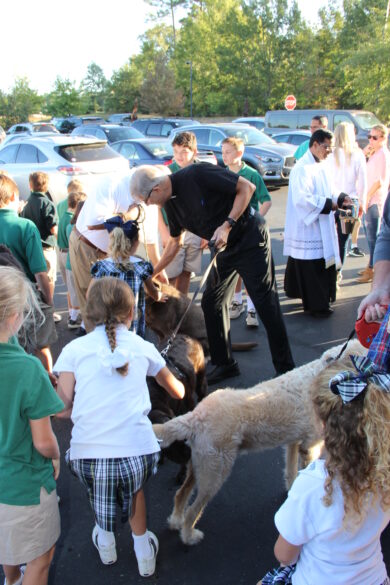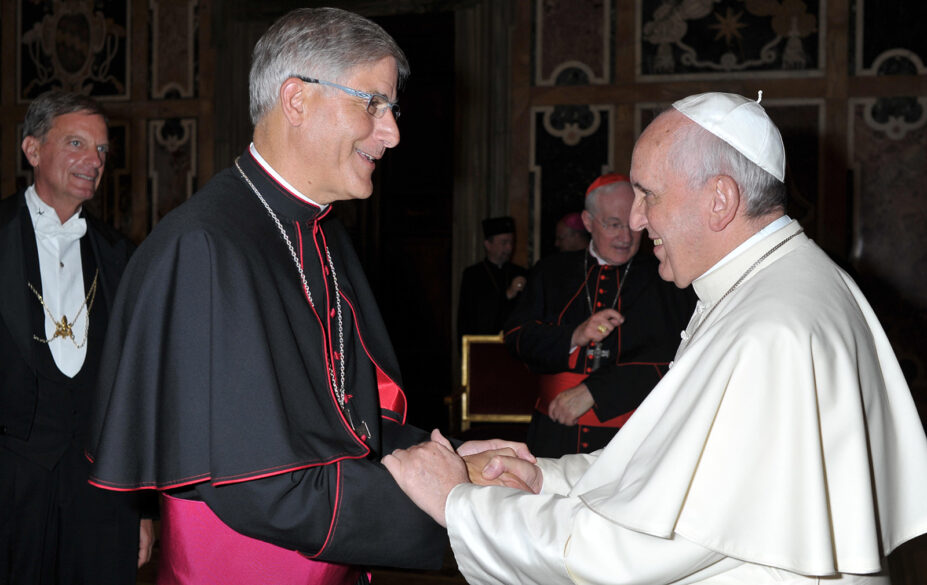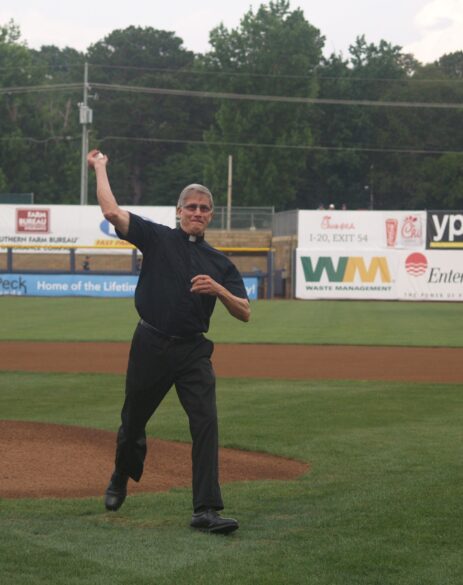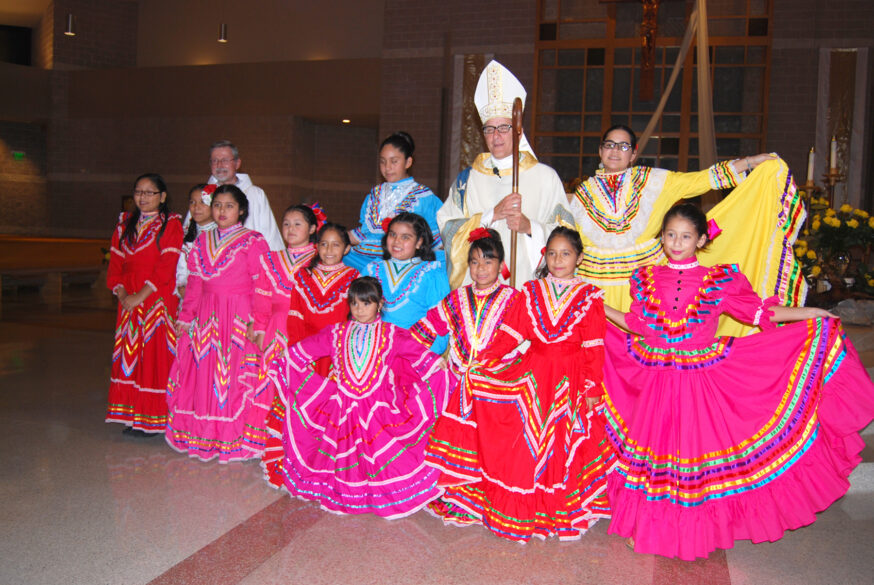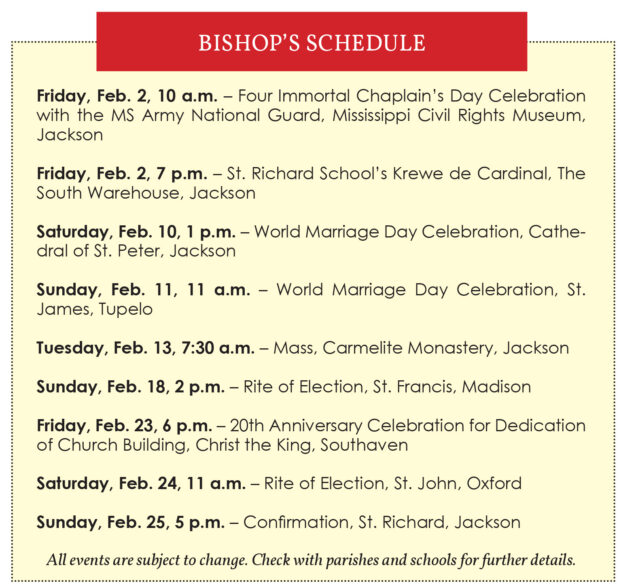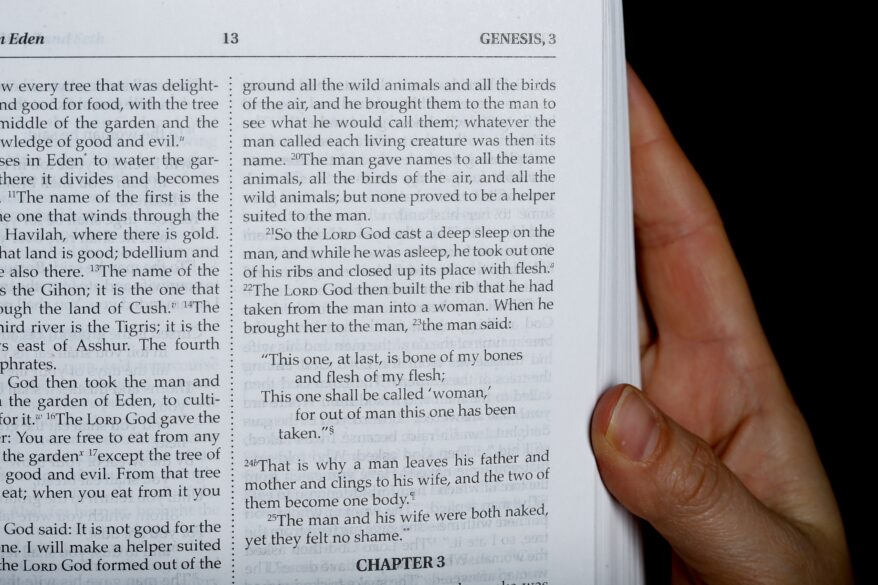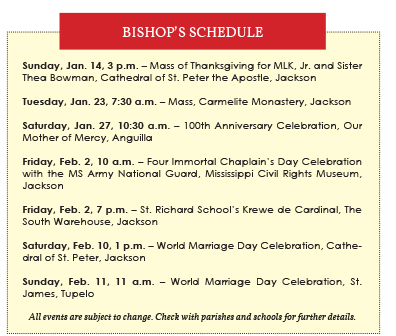Por Obispo Joseph R. Kopacz, D.D.
La Cuaresma llega a su etapa final con el Domingo de Ramos y el inicio de la Semana Santa. Es un tiempo intensivo para acompañar al Señor Jesús en su pasión y sufrimiento, a través de su muerte, para la gloria de la resurrección.
La singularidad de la Misa del Domingo de Ramos se encuentra en el rito de entrada con las palmas en la mano, la procesión y la proclamación del relato de la pasión. Este año, la pasión del Evangelio de Marcos resonará en todo el mundo católico, y en un grito de abandono profundamente descarnado, el Señor habla por toda la humanidad. “Dios mío, Dios mío, ¿por qué me has abandonado?” (Marcos 15:34) Entre el Domingo de Ramos y la Vigilia Pascual, la gran mayoría de los fieles se reunirán al comienzo de la Semana Santa para permitir que las últimas horas y palabras del Señor los bañen con la sangre y el agua que fluye de su costado.

Chiara Lubich, fundadora del Movimiento de los Focolares, expresa así el gran misterio de nuestro Señor abandonado: “Contemplamos en Él la cumbre de su amor porque fue la cumbre de su sufrimiento. Qué más nos podría dar un Dios, que pareciera que se olvida que es Dios … Jesús convirtió al mundo con sus palabras, con su ejemplo, con su predica, pero lo transformó cuando brindó la prueba de su amor: la Cruz.”
Lubich y todos los que ven al Señor con los ojos de la fe están construyendo sobre el fundamento inquebrantable de San Pablo sobre el poder de la Cruz. “El mensaje de la muerte de Cristo en la cruz parece una tontería a los que van a la perdición; pero este mensaje es poder de Dios para los que vamos a la salvación. … Los judíos quieren ver señales milagrosas, y los griegos buscan sabiduría; pero nosotros anunciamos a un Mesías crucificado. Esto les resulta ofensivo a los judíos, y a los no judíos les parece una tontería, pero para los que Dios ha llamado, sean judíos o griegos, este Mesías es el poder y la sabiduría de Dios. … Y, estando entre ustedes, no quise saber de otra cosa sino de Jesucristo y, más estrictamente, de Jesucristo crucificado. … para que la fe de ustedes dependiera del poder de Dios y no de la sabiduría de los hombres.” (1 Corintios 1:18, 22-24; 2:2-5)
Con su sangre y con su grito, Jesús crucificado y abandonado abrió todas las posibilidades para esta vida, incluido el perdón, la unidad, la justicia y la paz, y la vida eterna por venir. Es cierto que toda la humanidad está en el exilio, pero hay quienes cuyo abandono es extremo. Durante estos días tan sagrados de fe, somos conscientes de aquellos en Tierra Santa, especialmente, pero no exclusivamente, que son crucificados y abandonados en la guerra, la destrucción, la muerte y el desplazamiento. Estos abandonados se configuran más estrechamente con nuestro Señor crucificado en su sufrimiento.
Lubich ofrece esta visión y esperanza: “Jesús abandonado es el más podado, a quien ni el cielo ni la tierra parecían querer… Porque había sido desarraigado, tanto de la tierra como del cielo, unió a los desarraigados de Dios.”
Por lo tanto, Él y sólo Él es el camino para llegar más allá de las barreras del odio y la violencia hacia la unidad por la que oró en la Última Cena, “para que todos sean uno.” (Juan 17:22)
Nuevamente, de la sabiduría de Lubich y del Movimiento de los Focolares leemos: “Esto es todo, amar como él nos amó, hasta el punto de experimentar por nosotros la sensación de estar abandonado por su Padre. Por Jesús, de hecho, ganamos perdiendo, vivimos muriendo. El grano de trigo tiene que morir para producir la espiga; necesitamos ser podados para poder dar buenos frutos. Ésta es la ley de Jesús, su paradoja. El Espíritu Santo nos está haciendo comprender que para realizar la oración de Jesús ‘que todos sean uno’ es necesario acoger a Jesús abandonado en nuestra desunión. Jesús abandonado es el camino, la llave, el secreto.”
Estas son palabras de sabiduría para nosotros durante la Semana Santa en la línea de San Pablo. El Espíritu Santo ha inspirado a muchos en los procesos sinodales y de reinvención en nuestra diócesis para abordar la necesidad de una mayor sanación y unidad en nuestras comunidades de fe.
El Espíritu Santo nos guía durante la Semana Santa a mirar a Cristo crucificado y abandonado como el poder y la sabiduría de Dios en quien todo es posible. El Espíritu Santo que resucitó a Jesús de entre los muertos y que habita en nosotros por la fe y el bautismo, nos inspirará a proclamar el ¡Aleluya! el Domingo de Pascua porque ha resucitado. Pero antes de llegar a la tumba vacía, que el Señor crucificado y abandonado nos lave en su sangre.



